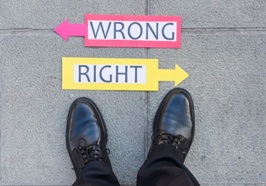A MORAL ISSUE: TO PROFIT OR NOT TO PROFIT?
Daniel Pallotta is the former head of a for-profit company that raised money for AIDS research and other causes. Over the course of nine years, he generated a massive sum, $305 million in donations. As the head of the company, he himself made about $400,000 each year. This fact was not widely known, however, once it was made open to public, he was hit with a storm of criticism and his company went out of business. In a 2008 article in the New York Times titled, “The Sin of Doing Good Deeds,” journalist Nicholas Kristof reported that profit that Pallotta’s company made when he was the manager dropped from $71 million to just $11 million after he had to quit. So who’s the immoral one now, Pallotta or his critics?
Why we should care about why a person chooses to donate is something of a mystery. Some psychologists claim that pure selflessness and morality may be more about future concerns. We may like to know that a peson who donates today will give again in the future. It could also be that we like seeing our role-models god-like, freed of human needs and greed. Would Gandhi’s work have been any less great if toward the end of his life he had written a blockbuster autobiography and become fabulously rich? No, but we would surely see him differently. All the same, do-gooding is still do-gooding. There has never been a sick or homeless person who would have turned down needed medicine or a hot meal because the donor made an honest buck in the process. The help, however it came, is all that mattered.

